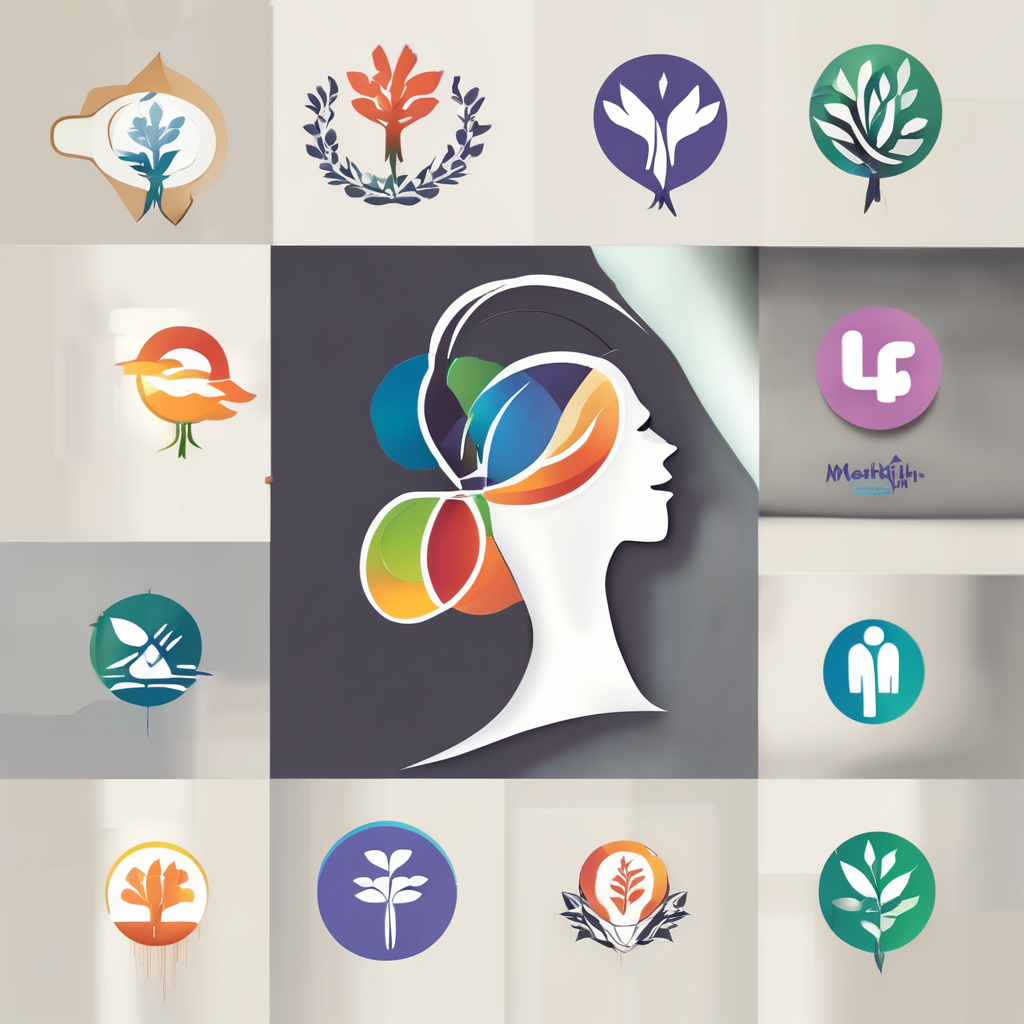Overview of Music Therapy and Cognitive Health
Music therapy, an established practice since the early 20th century, uses musical interventions to achieve therapeutic goals. It focuses on improving the well-being of individuals, particularly seniors, by leveraging the emotional and mental effects of music. The practice is deeply rooted in the understanding that music can stimulate various cognitive processes.
Cognitive health is a critical aspect of well-being, especially for seniors. As people age, maintaining cognitive health becomes paramount to preserving independence and quality of life. Music therapy positively impacts cognitive functions by engaging the brain in complex processing tasks. It stimulates memory, attention, and problem-solving skills, which are essential for seniors.
Topic to read : Revitalize Senior Well-Being: Unlock the Advantages of Regular Chiropractic Care
The influence of music therapy on cognitive functions is profound. Studies indicate that engaging with music can delay cognitive decline and enhance memory capabilities in seniors. The therapeutic use of music encourages neural connections, which can lead to improved mental acuity. This holistic approach not only aids in cognitive preservation but also promotes emotional and psychological health, offering a comprehensive benefit for seniors seeking to maintain their cognitive health.
Benefits of Music Therapy for Seniors
Music therapy offers profound benefits for seniors, contributing positively to both mental health and cognitive improvements. Emotionally, it serves as a comforting presence, reducing anxiety and depression, while offering psychological benefits such as boosting mood and enhancing self-esteem. Seniors often find solace in rhythm and melody, which helps alleviate feelings of isolation and fosters a sense of connection.
Also read : Revolutionizing independence: cutting-edge gadgets for seniors with reduced hand strength
In terms of cognitive improvements, music therapy can significantly bolster memory and attention. Research has shown that seniors engaging in music-based activities demonstrate improved recall abilities and exhibit better concentration. By integrating music therapy into daily routines, seniors are encouraged to engage with familiar tunes that stimulate different parts of the brain, enhancing neural activity and cognitive resilience.
Case studies amplify these claims, illustrating successful outcomes where seniors have regained cognitive functions post-therapy. For instance, a group of seniors participating in weekly music therapy sessions showed marked improvements in short-term memory and problem-solving skills. These examples underscore how impactful music therapy can be in restoring cognitive functions, thus underscoring its value as a pragmatic approach to strengthening mental faculties among seniors. In essence, music therapy is not just an activity but a transformative technique that yields measurable benefits.
Practical Applications of Music Therapy
The practical application of music therapy in senior care is multi-faceted, focusing on the tailored implementation in caregiving to improve well-being. Successfully integrating music therapy techniques necessitates understanding the diverse needs of seniors and adapting programs accordingly.
Techniques Used in Music Therapy
Therapists use a variety of techniques including rhythmic exercises, singing, and instrument playing to engage seniors. These activities are carefully chosen to stimulate cognitive and emotional responses, promoting overall mental resilience.
Environment and Setting Considerations
Creating a conducive environment is crucial. Therapy sessions are often held in tranquil settings with minimal distractions to enhance the therapeutic effect. Factors like lighting, seating, and sound quality play pivotal roles in facilitating effective therapy.
Engaging Seniors in Music Therapy
Engaging seniors through use of familiar songs and personalized playlists taps into nostalgic and emotional memories, deepening the therapeutic experience. Group activities foster social interaction, while individual sessions offer tailored attention. To ensure accessibility, therapists must adapt activities for seniors with physical limitations, ensuring inclusivity and comfort.
By understanding these elements, therapists and caregivers can effectively utilize music therapy as a tool for improving senior care outcomes, ensuring a personalized and impactful approach to enhancing cognitive health.
Research and Evidence Supporting Music Therapy
Research studies on music therapy provide a robust foundation for its application in cognitive health, especially for seniors. Key studies demonstrate the efficacy of music therapy in enhancing cognitive functions. For example, a study conducted by Johns Hopkins University found that seniors participating in regular music therapy sessions experienced marked improvements in memory and executive function.
A comprehensive analysis from renowned institutions like the Mayo Clinic highlights how music therapy stimulates neuronal connections, which are crucial for maintaining cognitive health. Positron emission tomography (PET) scans reveal that engaging with music activates multiple brain regions simultaneously, reinforcing cognitive pathways.
The role of evidence-based practice is pivotal in advocating for music therapy. Studies have consistently shown that music can combat symptoms of cognitive decline, such as those associated with dementia and Alzheimer’s. Institutions underline the need for integrating music therapy into senior care routines to maximize cognitive resilience.
Overall, the accumulation of research and hard evidence substantiates music therapy as a vital component of senior care. Its proven outcomes advocate for broader adoption in healthcare settings, aiming to preserve and enhance the cognitive well-being of seniors through structured, therapeutic musical engagement.
Testimonials and Personal Stories
Music therapy profoundly impacts cognitive health, illustrated by personal experiences and testimonials from both seniors and caregivers. These stories highlight the remarkable, individual changes fostered through this therapeutic practice. Seniors often recount feelings of rejuvenation and mental clarity following sessions, with many attributing this to engaging, familiar melodies that evoke cherished memories. This evocative power of music often plays a crucial role in facilitating cognitive and emotional breakthroughs.
Caregivers observe notable transformations in those receiving music therapy. They report that seniors exhibit enhanced communication skills, improved mood, and a heightened sense of engagement in daily activities. Such positive developments underscore effectiveness, making it a preferred choice in senior care.
Heartfelt success stories serve as compelling evidence of music therapy’s impact. For instance, a caregiver shared how a reserved senior began reminiscing aloud and participating actively in group discussions after a series of music therapy sessions. Community feedback further validates these outcomes, describing music therapy as a life-enriching tool that builds community connections and fosters mutual understanding. This vibrant tapestry of personal and communal narratives elevates music therapy beyond a routine care practice to a transformative experience cherished by all involved.
Expert Opinions on Music Therapy
Expert insights stand at the forefront when it comes to understanding music therapy’s impacts on cognitive health. Music therapy professionals, through their rich experiences, shed light on effective strategies and techniques tailored for seniors. In interviews, therapists underline the transformative power of music, particularly noting its profound impact on memory and emotional well-being. They highlight how specific rhythmic patterns and melodies can enhance cognitive health, offering a non-invasive method to bolster mental resilience.
Health professionals share complementary insights, emphasising how music therapy often dovetails with broader healthcare strategies. These experts advocate for its integration into regular senior care, citing its role in delaying cognitive decline. Additionally, they stress the importance of a holistic approach, where music therapy complements clinical treatments to promote overall well-being.
Focusing on the future, experts envisage expanded research into the nuanced effects of music therapy, aiming to refine techniques and application. Current trends spotlight increasing interest in personalising therapy sessions and leveraging technology, such as virtual reality, to heighten engagement. As the field of music therapy evolves, these insights propel it toward becoming a mainstream component of comprehensive cognitive health care for seniors.
Implementing Music Therapy in Care Settings
The transition of music therapy into senior living and care facilities can be transformative. Understanding practical strategies is key to starting a music therapy program that enhances cognitive health. Initiating such a program requires collaboration between therapists and care facility staff to design sessions that meet the unique needs of seniors. Facilities should evaluate existing resources and allocate budgets to hiring certified music therapists and purchasing necessary equipment.
Success lies in tailoring programs that incorporate familiar songs and culturally relevant music, resonating with residents’ backgrounds. This approach not only makes sessions more engaging but also fosters a sense of comfort and belonging. Guidance from certified therapists ensures these sessions are both enjoyable and therapeutically effective.
Challenges, such as budgetary constraints, can hinder implementation and sustainability. Facilities should consider partnerships with local music therapy schools or centres to reduce costs. Moreover, ongoing staff training is vital to maintain the program’s integrity and efficacy.
Through strategic planning and resource allocation, care settings can cultivate a rich environment where music therapy becomes an integral part of improving seniors’ cognitive and emotional health. This approach promises to enhance not only cognitive outcomes but also quality of life.



